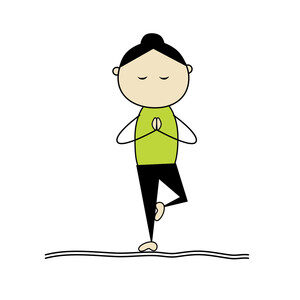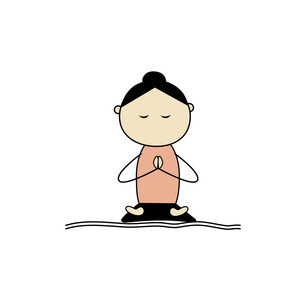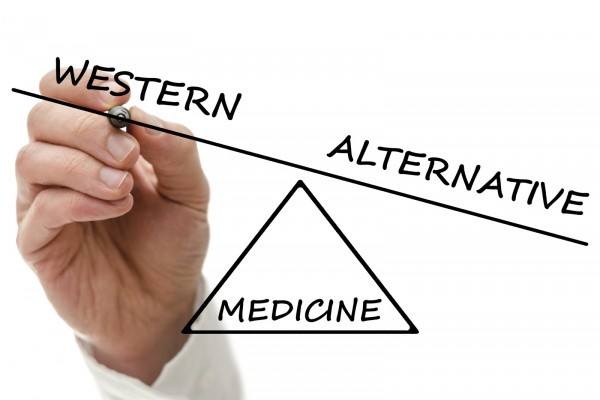Slowly over the last few years support for the alternative approach to wellness has grown.
Operative word being slow.
Although many factors drive this, the shift in attitude reflects an overall desire for people to access safe and effective treatment for the issues they face. Western medicine certainly provides numerous treatments with effective outcomes. They also provide a host of treatments and pills ineffective and harmful.
I find interesting the general pushback and distain for “alternative” treatments that we see on a regular basis. When we suggest a path of healing involving diet and lifestyle change, it’s not uncommon to be asked “where is the proof”.
This strikes me the most when this question is asked for something like yoga or acupuncture, two traditions with thousands of years of demonstrated use and effectiveness.
Thousands.
I realize that in our culture, yoga holds this cool and hip place now. I even hear it referred to a “fad”, as something that falls away with time like Troll Dolls. You might even think it is a recent invention.
Well…no. Old. Very old.
 Thousands of years old.
Thousands of years old.
Trying not to be vague here. You can’t find a practice more tested than yoga. After all, it did not survive thousands of years because it sucked.
Right?
Seems to make sense to me anyway. Yet, even with this I read things demanding that proof be provided in support of these kinds of practice.
Now I realize that any practice, even a good one, may not be effective for everyone. A bad teacher or method can mess up even the best healing approach. I’ve seen this many times. Even so, does that mean we need proof to fully accept something that has an impressive track record?
What stirred this for me? Well I read this article recently about this very issue. The author of the article talks about the help she received from “alternative” treatments like yoga.
“Great” I think. A personal sharing about a great practice with a recommendation supporting it.
The article then goes to explore other complementary therapies and the rise of these in the United States. More and more people demand for these methods to become part of a treatment plan for an issue. For us here at Organic MD we see this as encouraging.
However throughout the article asks a fundamental question of all these therapies: Does science back them up?
Here I tend to scratch my head.
You do something. It helps. Then you wonder if scientific research backs you up? I find that hard to follow.
And what if research doesn’t back it up? Do you throw it away because science can’t figure out a good way to research it? Many times we see physicians attack a naturopathic approach to an illness (an approach that might actually work) simply because they don’t have a research study to back it up.
For me this just seems like madness.
Now in the health and wellness world there are many snake oil salespeople. Many.
The supplement world teems with nairdowells, selling products that could benefit from some rigorous testing. Anytime something is offered as a magic cure should raise a big red flag. Solitary magic cures share the same company with unicorns – mythical and hard to find.
Ancient systems of medicinal healing look at supplements as…well…supplemental. They play a part in a larger plan to rebalance your health. Along with other lifestyle changes, they work together to bring your body in harmony again.
Please remember that Western medicine has a few slippery players of their own. A few research studies does not remove the fact that a particular drug ends up hurting the person it tries to help. Yet because it’s tethered to “science” we somehow forget to question this. Bad idea.
Overall I enjoyed the article. I appreciate a mainly supportive pitch to try alternative methods to the Western model of medicine. We need more of them.
Still when it suggests that something like meditation and deep breathing “passes scientific muster” I need to take a deep breath myself to calm down. Meditation and the notion of deep breathing has a track record of several thousand years.
 Long before Buddha, a stellar example of the benefits of mindfulness, meditation practice thrived. This powerful practice continues today because it provides a sane and easily accessible method for calming the mind and body. The practice survives after 100’s of generations.
Long before Buddha, a stellar example of the benefits of mindfulness, meditation practice thrived. This powerful practice continues today because it provides a sane and easily accessible method for calming the mind and body. The practice survives after 100’s of generations.
Not a bad track record.
Don’t misunderstand me. I support scientific research and studies. The value clearly exists for this level of scrutiny.
I also feel that the litmus test for an effective approach to healing reaches farther than whether science gives it a gold star. Your own experience plays a key role and ignoring it feels dangerous.
Your experience in the healing process provides the strongest test.
Go check out the article and let us know your thoughts. Share your wisdom from your own experience and let us and the other readers know about it. As we always say – sharing this helps all of us learn to care for ourselves better. The power of community.
As always take care.
To Your Health.
Images courtesy of © Can Stock Photo Inc. / Kudryashka

